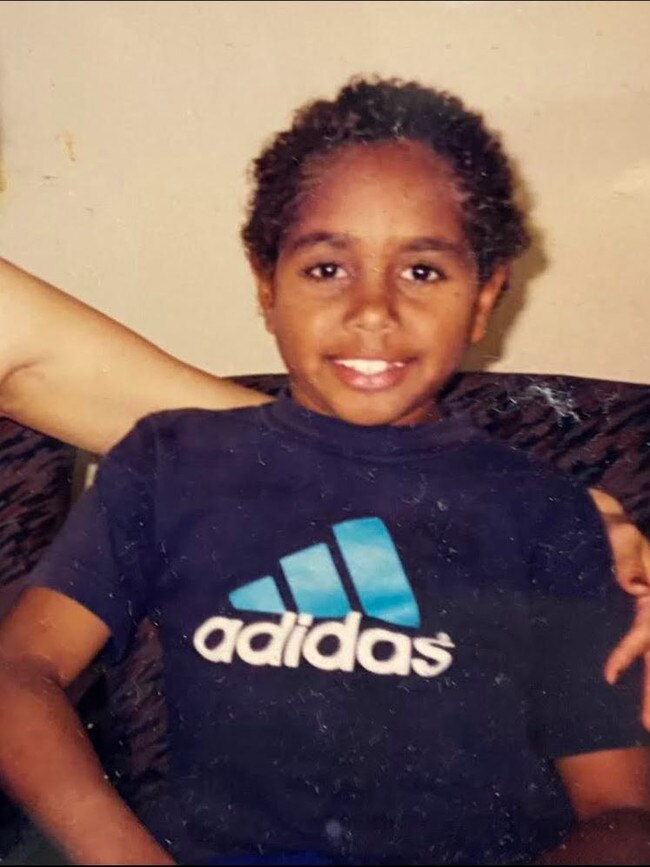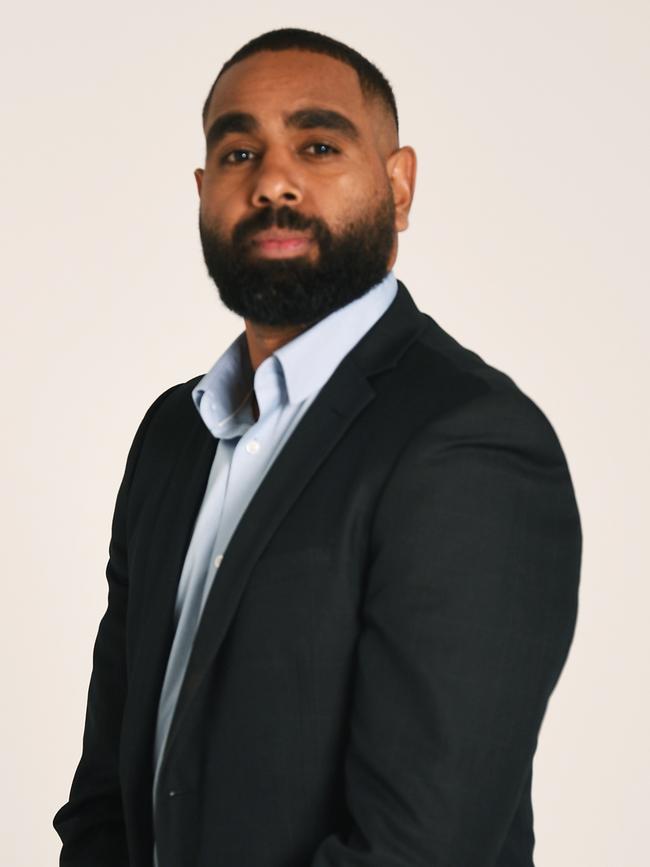Douglas Smith: I’ve been threatened by police just for being Aboriginal
These were the words hurled at Douglas Smith in his first encounter with a white police officer. It’s why he says children should not be treated as criminals.
Opinion
Don't miss out on the headlines from Opinion. Followed categories will be added to My News.
“Do you want to get locked up you little black *******”, were the words I was threatened with in my very first encounter with a white police officer when I was about 10 years old.
It was a hot day in my hometown of Ceduna on the far west coast of South Australia, and a lot of the local kids, both Aboriginal and non-Aboriginal, were all down at a popular swimming spot, having fun together as we usually did.
A police car came down the hill and drove past as one of us in a group (not me) yelled out something cheeky, like, “hey”, or “oi” to the officer, when all of a sudden, he stopped and got out of the car, walked straight up to me, and threatened to arrest me.
At the time, I was mostly surrounded by my Greek mates, who were gobsmacked by how I was targeted, and they even attempted to say something to defend me but were told to keep their mouths shut.
That was a defining moment for me and it set the tone for how I believed I would be treated by police for the rest of my days, and I wasn’t far off.


Being stopped and questioned by the police on the street for no reason as I saw it, was a regular occurrence for me, especially whenever I was in a group with other Aboriginal children.
When I was about 12 years old, I remember one day in particular in Port Lincoln, where a lot of my family live, a police officer stopped a group of us Aboriginal kids as we were walking along the street and tried to entrap us for crimes we had nothing to do with.
The officer called me by name: “Douglas, we’ve got evidence that you and your brother ripped off a boat at the town marina.”
I couldn’t believe what I was hearing because I knew I had absolutely nothing to do with it, and I didn’t even know that it had happened.
We walked away without being charged or arrested and it was clear to me after that encounter the officer had no evidence, and was lying to get me to admit to something that I didn’t do.
But getting us to admit to crimes that we didn’t commit was something the police used to do to us all the time.
Having to give officers my details and, in some cases, being searched and questioned about things I knew nothing about, was traumatising and still bothers me today.

I’m 31 years old now, and I haven’t been bothered by the police in years, but I do try to avoid them at every turn because of my experiences as a young Aboriginal boy growing up in rural SA and the inner-Adelaide suburb of Kilburn.
Why am I bringing this up now? Well, because there is a petition about to land on the state Attorney-General Kyam Maher’s desk this week, with more than 200,000 signatures campaigning to see the age of criminal responsibility raised from 10 to 14.
Of course there will always be opposing views to such a change. For example, Police Association of SA president Mark Carroll believes it is an “ill-conceived” legal push because it would leave children vulnerable for bikie gangs and other organised crime groups to recruit them.
I surely hope not, but such a blanket statement does not relate to, or include, the experiences of Aboriginal children when they come into contact with police on the street.
Aboriginal children in SA are more likely to end up in youth court before a judge. The latest report from May 2021 stated youth diversions by police in relation to Aboriginal offenders were at their lowest rate since records began in 2008, with only 23.3 per cent of Aboriginal offenders being diverted away from court, compared to 55.6 per cent of non-Aboriginal youth.
To me, that seems like two different treatments for two different races of people. It’s no wonder that Aboriginal children are still over-represented in youth justice supervision and juvenile detention.
Nationally, between 2020-21, Indigenous children and young people made up about 49 per cent of those under youth justice supervision, yet represented only 5.8 per cent of young people in the Australian population.
Once an Aboriginal or Torres Strait Islander child or young person becomes involved in the youth justice system, it usually becomes a revolving door. And it’s a hard cycle to break.
Police are usually the last line of call for Aboriginal people if we’re ever in trouble, because we’ve never really been treated fairly, and that certainly is my experience.
At this point, the issue of police locking up Aboriginal children at higher rates than non-Aboriginal children seems to be entrenched in the way the force operates in SA, and I don’t see it stopping anytime soon.
I do hope to see a continued effort from the state government in addressing the underlying issues of poverty and disadvantage in Aboriginal communities, which may help in the long run.





